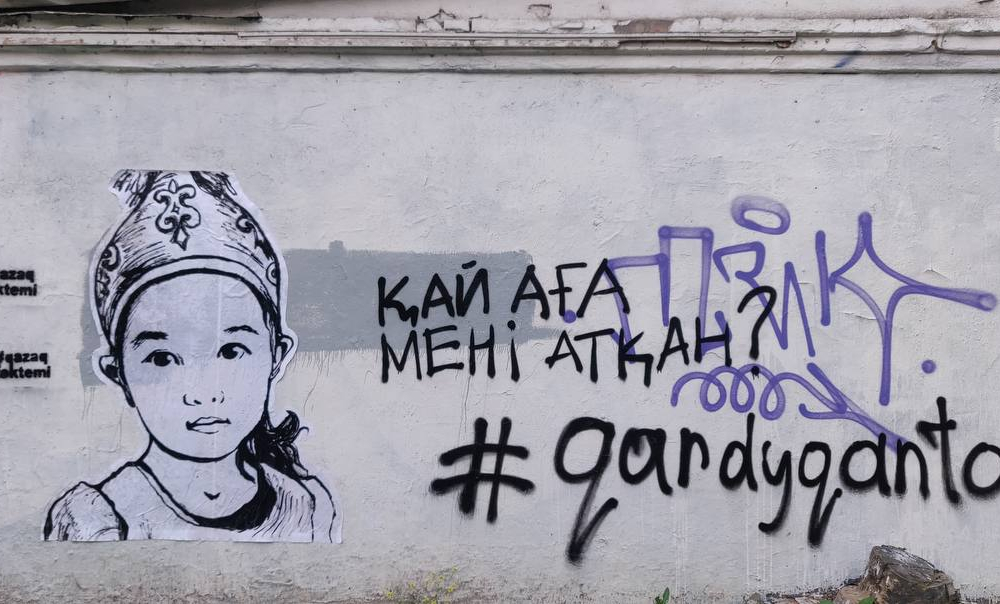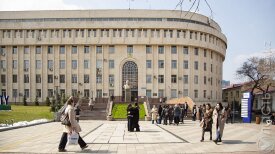A department of the ministry of interior in Almaty closed a criminal case on December 30 on the killing of Aikorkem Meldekhan, a 4-year-old that was shot last year on January 7 near Republic Square. She was in her father’s car as they were driving to find an open grocery store. Aikorkem was killed, while her older sister Zhanel was wounded by bullets that lawyers say were used by the military. Investigators were unable to find the corpus delicti, the lawyers said on January 6. The family also said the case is now listed as “classified” and they no longer have access to the documents.
Aikorkem was one of the hundreds of victims of the violent repression of protests erupted across the country last year, which became known as Qandy Qantar (“Bloody January”). On January 5, Berik Assylov, the General Prosecutor, told Parliament that the decision to “shoot without warning” was taken in the afternoon of 5 January 2022, soon before the announcement of a curfew in Almaty.
Of the 238 victims, Assylov confirmed that 142 were killed for having violated the curfew in the days following January 5.
During his speech, Assylov also named former national security chief Karim Massimov as the main organizer of the riots, with the intention of leading a coup d’etat.
Campaigners that work in Massimov’s defense told Vlast that pinning the accusation for Qandy Qantar on him alone is misleading.
”The Prosecutor General’s comments while a trial is ongoing, cloaked behind national security, shows clearly that Karim Massimov is nothing but a scapegoat for the Government of Kazakhstan’s violent suppression of protesters,” David A. Merkel, a US consultant and advocate for Massimov’s release, said in an email.
Assylov also named another high-profile former cabinet member, accusing him of purposeful misconduct. At the height of the clashes, former defense minister Murat Bektanov gave “illegal orders” and “abandoned key military facilities” according to Assylov.
In Almaty’s Republic Square two groups organized a commemoration for the killed during Qandy Qantar on January 5. One group was coordinated by the authorities, while another group featured some political activists.
On January 4, President Kassym-Jomart Tokayev appointed new ministers. Azamat Yeskarayev became the new Minister of Justice, substituting Kanat Mussin, who took a post as judge in the Constitutional Court. Former executive secretary of the ruling Amanat party, Askhat Oralov, became Minister of Culture and Sport. Marat Karabayev was promoted to Minister of Industry and Infrastructure, after having served as deputy to outgoing minister Kairbek Uskenbayev. Similarly, former deputy Minister of Education Gani Beisembayev and former deputy minister of Ecology Zulfiya Suleimenova were promoted to the top job at their respective ministries.
On January 4, the Central Bank gave Kazakhstani banks the green light for a one-time transfer of Russian rubles outside the country, essentially to offload currency that is no longer globally convertible without attracting suspicion of sanction-busting. The permission to “export” rubles will last for two months, pending a review.
In 2022, prices in Kazakhstan increased by 20.3%, the Statistics Committee said on January 4. Importantly, food products showed a 25% inflation.
Поддержите журналистику, которой доверяют.








